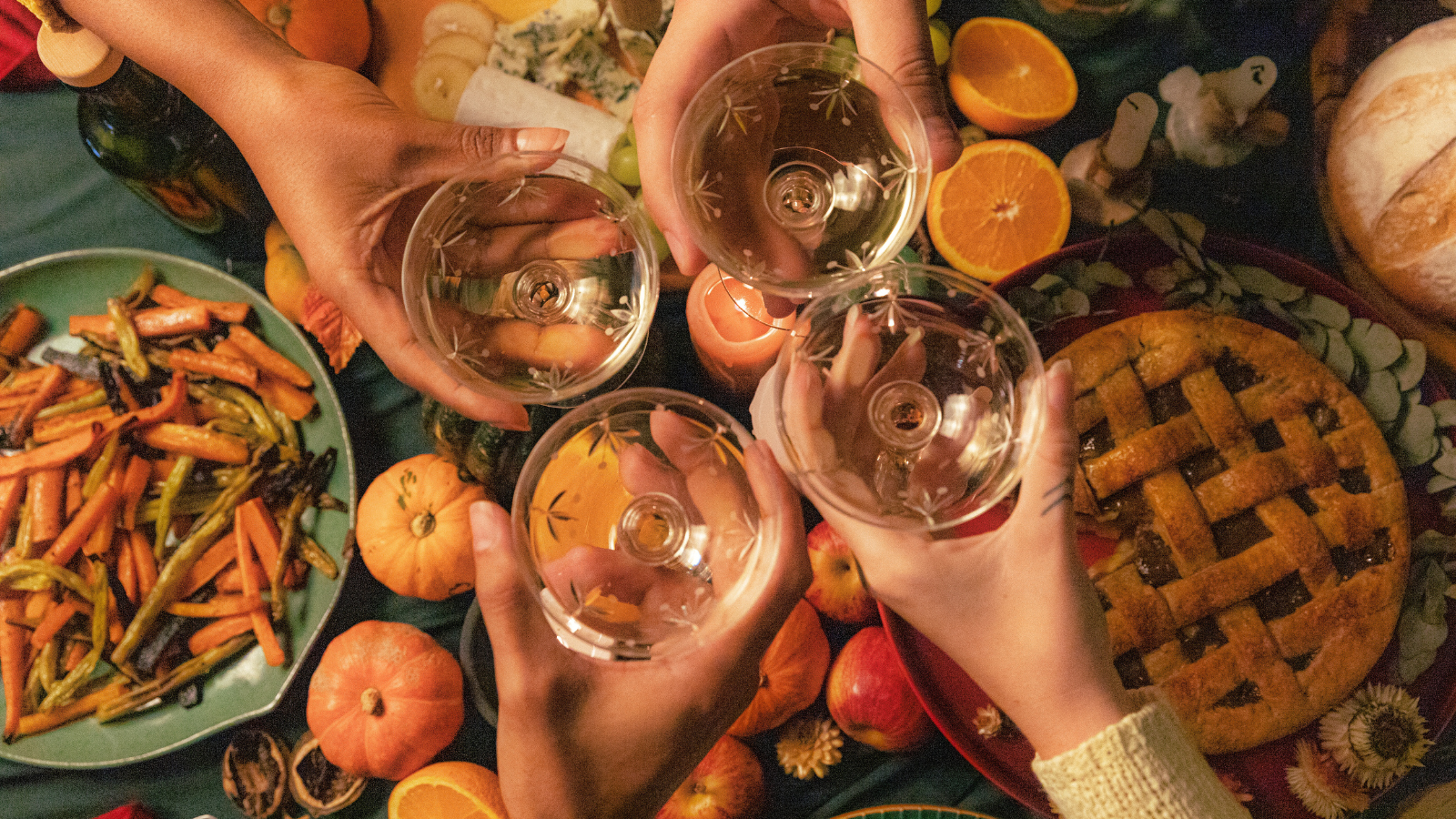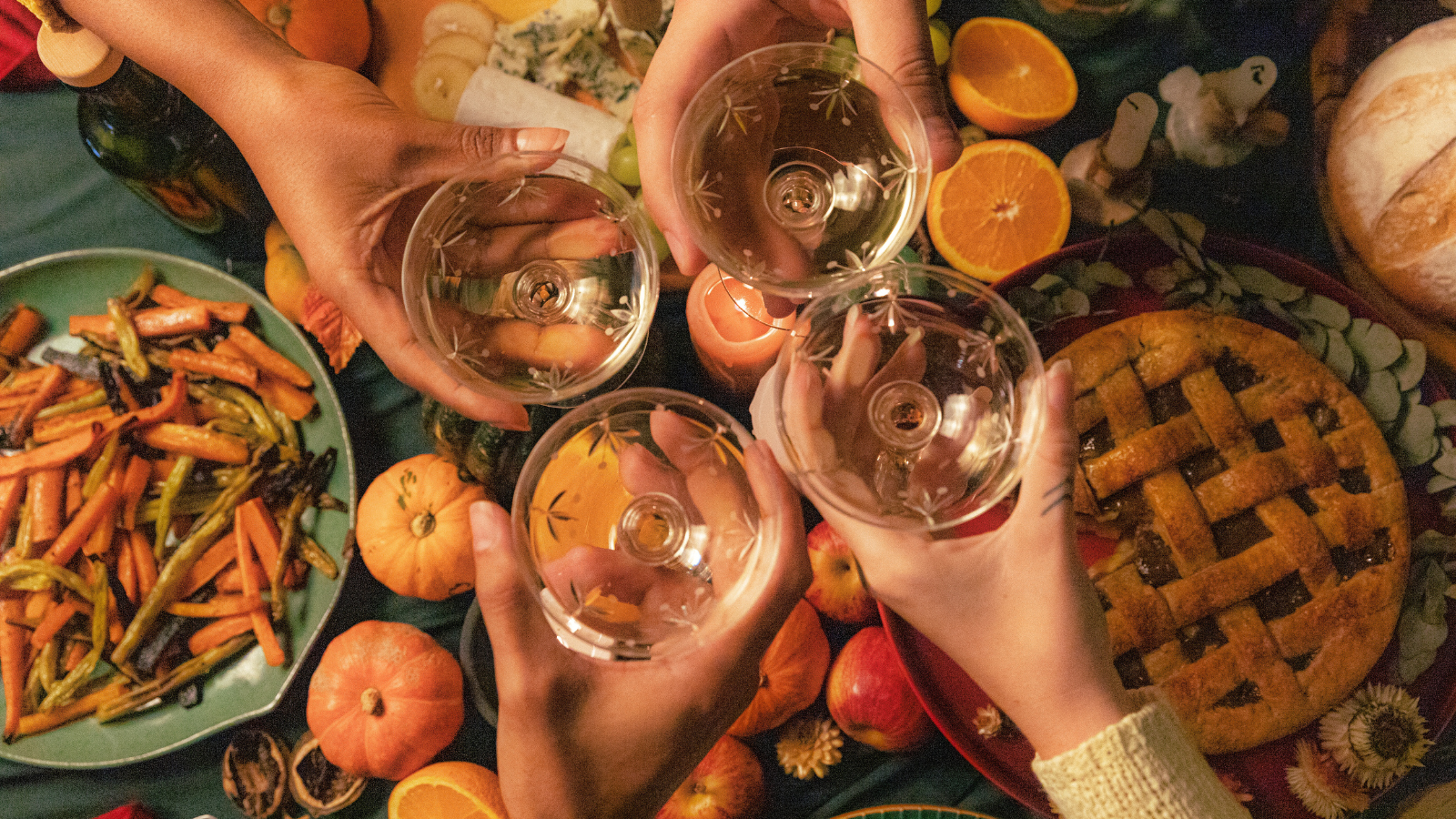

8 Tips for a Greener Thanksgiving
As we prepare to gobble up a feast of gratitude and gatherings, it's important to understand that Thanksgiving can also generate a significant amount of waste. According to the Natural Resources Defense Council (NRDC), Americans typically throw away about 200 million pounds of turkey during the entire holiday season, which includes Thanksgiving, Christmas, and New Year's. But it's not just the food waste that poses a problem. Disposable plates, utensils, and napkins, along with unnecessary energy consumption and travel, all play a role in increasing our carbon footprint during the holiday season. Here are eight easy ways to give thanks and go green for Thanksgiving and beyond.
8 Easy Ways to Make Your Thanksgiving Sustainable:
1. Greener Pastures for Your Table:
Swap disposable plates and utensils for reusable ones to reduce waste. Opt for dishes that are both dishwasher safe and eco-friendly.
2. Turkey Trot to the Local Farmers' Market:
Support local farmers and reduce your food's carbon footprint by sourcing Thanksgiving ingredients closer to home. Consider visiting local farmers' markets, co-ops, or even your own garden for fresh, sustainable ingredients. This supports local agriculture and reduces emissions associated with long-distance food transportation.
3. The Dirt on Food Scraps:
Composting can turn kitchen scraps into rich soil for future gardening adventures. Consider setting up a compost bin for food scraps, coffee grounds, and yard waste. Composting reduces the amount of organic waste in landfills and enriches your garden with nutrient-rich soil.
4. Plant a Plant-based Side:
Whip up delicious vegan and plant-based pies to reduce your footprint. Experiment with recipes that use dairy and egg alternatives, such as almond milk or flax eggs. These pies can be just as scrumptious and kinder to the environment.
One of the biggest benefits of enjoying a plant-centric Thanksgiving is the impact that it has (or doesn’t have) on our planet. In a 2016 study, Carnegie Mellon University researchers sought to measure the carbon footprint of a traditional Thanksgiving dinner. They found that a 16 pound turkey created 34.2 pounds of CO2, which is equal to the combined total amount of CO2 produced by roasted brussel sprouts, cranberry sauce, mashed potatoes, turkey gravy, biscuits, and apple pie.
It doesn’t have to be everything on the table, but small plant-based substitutions can have a big impact.
5. Don’t Get Your Napkins in a Wad
Choose cloth napkins over disposable ones to minimize waste. Select reusable cloth napkins made from sustainable materials like organic cotton or linen. You can wash and reuse them for future gatherings, reducing the need for disposable options.
Bonus, you totally look like you have your stuffing together. You can even coordinate your cloth designs with your plates. We’re loving designs from World Market, but you can even thrift a set!
6. Waste Not, Want Not: Thanksgiving Leftovers
Transform leftovers into creative, mouthwatering meals. Before you toss any uneaten food, consider repurposing it into new dishes. Turn turkey into sandwiches or salads, make vegetable soup with leftover sides, or create a Thanksgiving-inspired breakfast frittata.
Have too much to enjoy? Share the wealth with those in need. Donate to shelters! Organizations like Rescuing Leftover Cuisine partner with local non-profits to distribute meals to food-insecure communities.
7. Don’t Gobble Up Gas, Carpool
According to the Sustainable Travel International network, it would take an acre of forest a year to absorb the same amount of CO2 emissions of a one-way flight from London to New York.
Consider carpooling with family and friends to reduce your carbon footprint. Encourage your guests to carpool or use public transportation when coming to your Thanksgiving gathering. Fewer cars on the road mean fewer emissions and a smaller environmental impact.
8. Light the Way (Sustainably)
Make your Thanksgiving table cozier and more eco-conscious with NOTES® refillable candle. These charming candles are not only sustainable, but they also create a warm and inviting ambiance, perfect for your holiday celebrations.
With single-use candles taking up to 1 million years to decompose, having a highly fragranced alternative that can be infinitely refilled is pretty much a no-brainer.
The Evergreen & Spicy duo is the perfect starter kit for holiday hosting.
By making these easy sustainable swaps for Thanksgiving, you're not just taming your appetite; you're also taming waste. So, this Thanksgiving, let's 'dig in' to eco-friendliness and 'dish out' some sustainable gratitude. Happy feasting, folks!
Share:
0 comments
Keep reading
-

Four Essential Holiday Cocktails (With The Perfect NOTES® Fragrance to Pair 😉)
Using two senses is better than one - which makes pairing flavors and scents so fun. These are the perfect cocktails to pair with each NOTES® holiday fragrance for your next December gathering or cozy night in. Trust us, you'll want to try them all -

The Environmental Impact of the Holidays
It’s finally December, which means it's officially time for festive chaos. Chances are, your to-do list is looking like a CVS receipt these days. With cookies to bake, family to see, projects to finish, and gifts to buy, a lot can go unnoticed this time of year. And while it’s all done in the name of fun and cheer, it can leave a pretty intense mark on the environment. In fact, the holidays leave one of the biggest carbon footprints of the entire year. -

8 Tips for a Greener Thanksgiving
As we prepare to gobble up a feast of gratitude and gatherings, it's important to understand that Thanksgiving can also generate a significant amount of waste. According to the Natural Resources Defense Council (NRDC), Americans typically throw away about 200...


